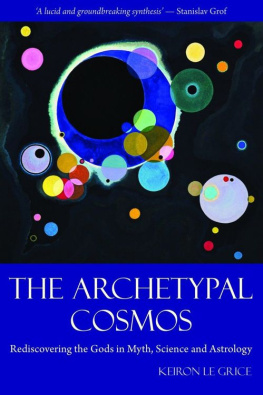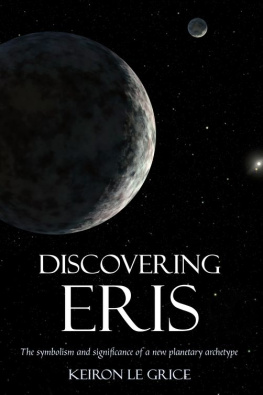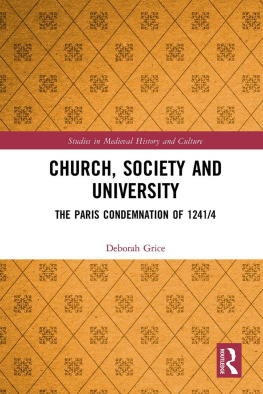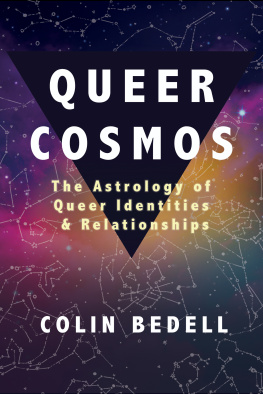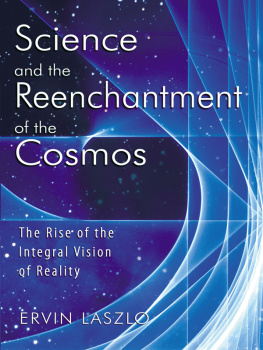Acknowledgments
Over the course of this eleven-year project, I have benefited from the assistance and insight of many learned friends, teachers, and colleagues. In particular, since 2004 I have been fortunate to study and teach in the unique multidisciplinary research environment provided by the Philosophy, Cosmology, and Consciousness programme at the California Institute of Integral Studies (CIIS) in San Francisco. I am especially grateful to Richard Tarnas for his encouragement and support during my time at CIIS, and for his pioneering contribution to the field of archetypal studies, which has done much to illuminate my understanding of archetypal astrology and its wider theoretical context and implications. I would like also to express my gratitude to Sean Kelly and Paul Marshall for their editorial suggestions and astute comments on several chapters in Part 2 of this book. My thanks, too, to Brian Swimme for his helpful feedback on Chapter 9. For providing financial assistance to help me complete my studies, I am grateful to CIIS for multiple awards of its International Student Scholarship between 2004 and 2008, and to the Joseph Campbell Foundation (in association with Pacifica Graduate Institute, Santa Barbara) for the award of the Joseph Campbell Research Grant in 2006.
I give special thanks to Rod ONeal, co-editor of the Archai journal, for his insightful editing and careful proof reading of the manuscript in its entirety, and to my other friends and colleagues at Archai including Bill Streett, Grant Maxwell, and Chad Harris whose creative work behind the scenes has helped launch the field of archetypal cosmology over the last couple of years. For reading and commenting on the manuscript in its later stages, I give thanks to Jonah Saifer and Nicola Sayers; for feedback on early drafts, my thanks to Doris Broekema, David Randal Davies, Pamela Russell, and Erin Sullivan. A warm thank you, too, to Christopher Moore at Floris Books whose enthusiasm for my work and helpful editorial suggestions turned my working manuscript into a publishable book.
I wish to express my deep gratitude to David and Margaret Davies for their generous support over many years, to my family, and to the following friends for aiding my transition from Britain to San Francisco and for providing a helping hand during my time at CIIS: Georgia Bailey, Deborah Bursnell, Adrian and Nicola Cook, Joseph Kearns, Jessica Kostosky, Jennifer Martin, Clare Meeuwsen, Kimberly Hoard Nasrul, Jody OConnor, Steven Swanson, Bernard Voon, and the late Kelleen Nicholson. I am particularly grateful to my good friend Richard Wormstall for his insight, encouragement, and generosity. Our many discussions over the years have been a continual source of renewal and stimulation.
Finally, I would like to pay tribute to my father, Barry Le Grice, who passed away in 2007, and who was deeply influential on my own spiritual journey; and my son, Lukas Rafael, born as I was completing the final sections of writing. Most of all, my deepest appreciation and gratitude goes to my wife, Kathryn, for her love and support over many years, for her unwavering faith in my work, and for her insightful and meticulous editorial input to the text. This book is dedicated to her.
KLG
June 2010, San Francisco
The honour of the gods has been
Too long, too long invisible
Friedrich Hlderlin
Introduction: Parallel Frontiers
The mystery of the night sky, those enigmatic passages of slowly but steadily moving lights among the fixed stars, had delivered the revelation, when charted mathematically, of a cosmic order, and in response, from the depths of the human imagination, a reciprocal recognition had been evoked. A vast concept took form of the universe as a living being in the likeness of a great mother, within whose womb all the worlds, both of life and death, had their existence.
Joseph Campbell
The seat of the soul is there, where the inner and outer worlds meet.
Novalis
Staring into the vastness of space we behold a great and fathomless mystery. The night sky evokes a sense of immeasurable depth and inconceivable expanse, of timelessness and the infinite, of the terror of the dark unknown and the enticing lure of the still-to- be-experienced . Simultaneously, it impresses upon us the enigma of our ultimate origins and the promise of our distant future. The universe, we sense, is both our source and our goal, our beginning and our end. The evolving context of life itself, it is the originating ground of all things.
Throughout history the vision of the starry firmament has captivated the mythic imagination, inspiring feelings of awe and wonder in all those who gaze with open hearts and minds to the vast darkness whence all life came. The night sky has stimulated our deepest spiritual yearnings and, in the great civilizations past, it was revered as the sacred kingdom of the gods, the heavenly domain in which the souls of the dead found their divine resting place. The encompassing background to the unfolding human drama, the sky has ever been a symbol of the transcendent spiritual power that lies above and beyond the personal sphere of human existence.
Thousands of years ago it was, no doubt, a similar experience of the night sky that compelled our ancestors to envisage the universe as the all-embracing womb of the Great Mother goddess within which all life springs forth and to which all individual forms will, finally, return. Even today, for all the ingenious technological developments and great cultural achievements of modern civilization, we retain a sense of this primordial intuition of our deep mystical identity and mythic relationship with the universe. If we can set aside our more limiting rational preconceptions, we can recognize in the mystery of space something of the mystery of our own deepest being.
From the very beginnings of civilization in the third or fourth millennium BCE , the heavens were the great focal point of mathematics and mythology, of philosophy and the arts, and of science and religion. With the development of celestial mathematics, early astronomy and astrology then a single discipline became the catalyzing force behind the birth of human civilization itself in the ancient city states of Mesopotamia, where religion, science, and writing first emerged. Since that time, the celestial realm has been studied and explicated by the scientific mind, its planetary movements tracked and modelled mathematically, its laws of force and motion observed, measured, calculated, and abstracted.

